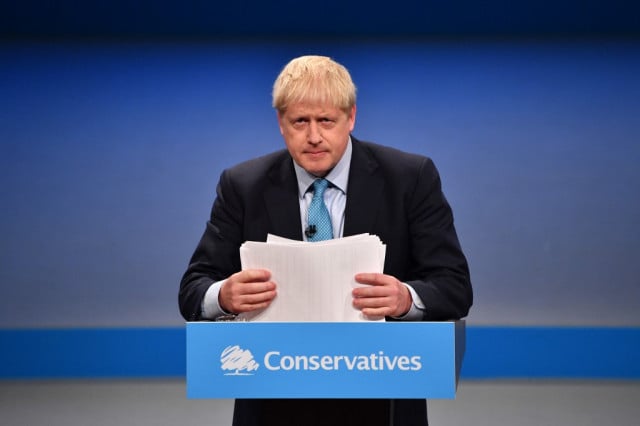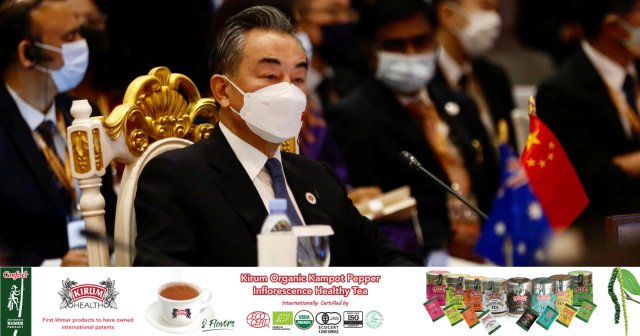British PM Boris Johnson gambles on early election

- Agence France-Presse
- October 30, 2019 3:27 AM
London, United Kingdom -- British Prime Minister Boris Johnson finally has the election he has been pushing for but it is a gamble, with experts warning of one of the most unpredictable polls in years.
Johnson is currently hamstrung by his lack of a majority in the House of Commons, but hopes to win enough seats to force through his Brexit plan -- and stay in office.
If he fails, opposition parties are likely to form a coalition that could yet seek to thwart Britain's EU exit.
- How could it affect Brexit? -
Britain's prolonged and painful exit from the European Union will inevitably loom large, with Brexit now set for January 31 -- just weeks after polling day.
Conservative leader Johnson has agreed exit terms with Brussels but was unable to get them through parliament in time to keep the original Brexit deadline of October 31.
He will campaign on a promise to "get Brexit done", calling for a majority to press through his deal and ensure no more delays.
The main opposition Labour party, however, has promised to negotiate its own divorce deal with the EU and put that to a referendum, with an option to reverse Brexit.
The smaller Scottish National Party (SNP) also wants a second referendum, while the Liberal Democrats have gone a step further, vowing to revoke Britain's request to leave the EU without even a public vote.
- What is the risk for Johnson? -
The election -- the third since 2015 -- will be the first test of public opinion for Johnson, who took office in July after winning a Tory leadership contest involving only party members.
His Conservatives are currently leading opinion polls, and if this continues, should win a majority of MPs.
Polls suggest Johnson's tough talk on Brexit has won back crucial eurosceptic voters who had defected to Nigel Farage's UK Independence Party (UKIP) -- before Farage himself moved on.
But Johnson now risks a backlash over his failure to keep his "do or die" pledge to leave the EU on October 31 -- and Farage is waiting in the wings with his new Brexit Party.
Johnson's vision of Brexit also risks losing him seats because of more pro-European voters in the south of England and in Scotland.
Many Tories are still haunted by the 2017 election, when the then prime minister Theresa May was predicted to win big but actually lost seats.
"This is the wing and a prayer election," said Rob Ford, a political expert at the University of Manchester.
- What can Labour do? -
Leftist leader Jeremy Corbyn surprised his critics with a strong performance in 2017, which switched the debate from Brexit to the lack of funding for public services.
But many of his own MPs disagree with his socialist views and resisted the coming election, fearing a heavy defeat.
Labour's position on Brexit has also confused many voters. It says it will strike a new exit deal and hold a new referendum -- but does not say how it would campaign.
John Curtice, a polling expert at the University of Strathclyde, said it would take a "miracle" for Labour to win.
"It's not a choice between Johnson and Corbyn, other than that Corbyn would be the leader of a minority government," he said.
"But we could be talking about a deeply minority Labour administration that is wholly beholden to the SNP and Liberal Democrats" who want a new Brexit vote.
- What do voters want? -
Polling research suggests voters identify themselves increasingly along pro- or anti-Brexit lines -- and are polarised on that subject.
But a recent British Election Study also found that voting intentions are highly volatile.
Between the 2010 and 2015 elections, 43 percent of voters switched parties. Between 2015 and 2017, the figure was 33 percent.
"Vote-switching is exceptionally high and largely unprecedented in post-war era. This means things can change," said Matthew Goodwin, professor of politics at the University of Kent.
- What about the weather? -
The last time an election was held in December in Britain was in 1923. The Conservatives won the most seats but Labour and the Liberals had enough seats to produce a hung parliament.
Ramsay MacDonald went on to form Britain's first Labour government with Liberal support.
Bad weather risks a lower turnout -- but may have more impact in changing the debate.
One of Labour's most successful campaign promises through the years has been to better fund the state-run National Health Service -- which is prone to winter crises.















